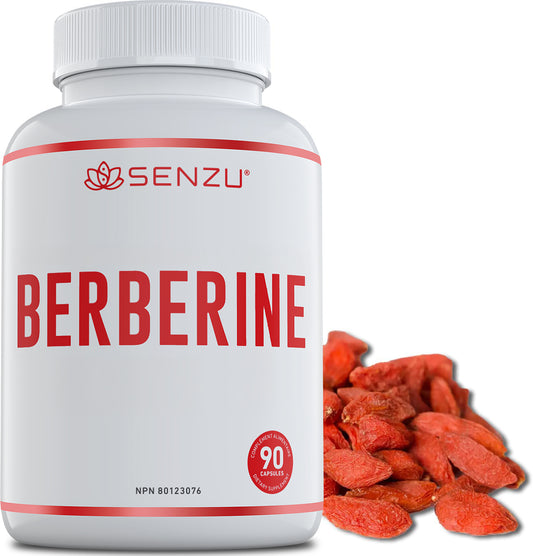Metabolic Flexibility: Resveratrol's Role in Supporting Energy Utilization

In a world where metabolic disorders are becoming more common, ranging from obesity and type 2 diabetes to chronic fatigue and insulin resistance, metabolic flexibility has emerged as a critical marker of health and resilience.
Metabolic flexibility refers to the body's ability to seamlessly switch between burning carbohydrates and fats for fuel, depending on energy demands and nutrient availability. A metabolically flexible person can thrive in both fed and fasted states, quickly adapting to workouts, stress, or dietary changes without crashing or craving sugar.
However, in many individuals, especially those with sedentary lifestyles or poor diets, this flexibility is compromised. The result is fatigue, weight gain, blood sugar swings, and poor endurance.
One promising compound gaining attention for its role in restoring and enhancing metabolic flexibility is resveratrol, a polyphenol found in red grapes, berries, peanuts, and red wine.
Let's explore how resveratrol influences energy metabolism and why it may be an important ally in regaining metabolic balance.
What Is Metabolic Flexibility and Why Is It Important?
A metabolically flexible body can do two key things:
-
Use glucose for energy after meals
-
Switch to fat-burning during fasting, sleep, or exercise
This adaptability ensures stable energy levels, healthy blood sugar, and effective fat metabolism. When flexibility is lost, the body becomes "stuck" relying on glucose and struggles to burn fat, which is a hallmark of metabolic inflexibility.
Symptoms of Poor Metabolic Flexibility
-
Midday energy crashes
-
Sugar cravings
-
Difficulty losing fat
-
Insulin resistance
-
Poor endurance or recovery
Improving this flexibility is crucial for:
-
Weight management
-
Hormonal balance
-
Blood sugar control
-
Long-term metabolic health
Resveratrol: A Polyphenol with Metabolic Benefits
Resveratrol is a naturally occurring antioxidant found in red wine, grapes, and Japanese knotweed. It rose to fame for its role in the "French Paradox" (why the French have low heart disease despite a high-fat diet), but its benefits go far beyond heart health.
At the cellular level, resveratrol interacts with several key metabolic regulators, including:
-
AMPK (AMP-activated protein kinase): the body's energy master switch
-
SIRT1 (Sirtuin 1): a protein linked to mitochondrial health and longevity
-
PGC-1α (Peroxisome proliferator-activated receptor gamma coactivator 1-alpha): a coenzyme that enhances mitochondrial biogenesis
These pathways play vital roles in energy production, glucose metabolism, fat oxidation, and metabolic adaptation, all of which contribute to metabolic flexibility.
How Resveratrol Supports Metabolic Flexibility
1. Activates AMPK for Improved Energy Utilization
AMPK acts like the body's fuel gauge. It gets triggered when energy is low, signaling cells to start burning fat and improving insulin sensitivity.
Resveratrol activates AMPK, leading to:
-
Increased fatty acid oxidation (burning fat for fuel)
-
Improved mitochondrial function
-
Reduced glucose production in the liver
-
Enhanced glucose uptake in muscle cells
- This helps shift the body from a sugar-burning state to a fat-burning mode more efficiently.
2. Enhances Mitochondrial Function
Metabolic flexibility is directly tied to the health and number of mitochondria, the energy factories in your cells.
Resveratrol increases mitochondrial biogenesis by activating PGC-1α, which supports:
-
More efficient energy production
-
Reduced fatigue
-
Improved endurance
-
Better metabolic responses to both feeding and fasting
More and healthier mitochondria mean better switching between energy sources.
3. Supports Insulin Sensitivity
A metabolically flexible body responds quickly to insulin after meals, allowing cells to absorb glucose efficiently and return to baseline faster.
Resveratrol improves insulin sensitivity by:
-
Enhancing insulin receptor function
-
Promoting GLUT4 expression (a glucose transporter)
-
Reducing inflammation and oxidative stress in insulin-sensitive tissues
This enables better glucose handling and smoother energy transitions between meals and fasting periods.
4. Promotes Fat Utilization During Fasting or Exercise
One key sign of good metabolic flexibility is the ability to burn fat during fasting, rest, or physical activity.
Resveratrol may enhance this by:
-
Increasing the expression of enzymes involved in beta-oxidation (fat burning)
-
Encouraging the conversion of white fat to "beige" fat, which has higher energy-burning capacity
-
Lowering circulating triglycerides and improving lipid metabolism
This results in a body that not only stores less fat but can more easily access it for energy.
Human Studies: What Do We Know So Far?
While much of the detailed mechanism data comes from animal or cellular studies, human trials are starting to show promising results.
Notable findings include:
-
Improved insulin sensitivity and mitochondrial function in obese, insulin-resistant individuals taking 150 mg per day of resveratrol (Cell Metabolism, 2011)
-
Reduced fasting glucose, blood pressure, and triglycerides in adults with metabolic syndrome
-
Enhanced fat oxidation and endurance in certain exercise-related studies
However, results vary depending on dosage, bioavailability, and individual metabolic health. Some healthy participants may see limited effects, suggesting resveratrol may be most beneficial for those with existing metabolic impairments.
Dosage and Supplementation Considerations
Effective dose: Typically 100 to 500 mg per day in human studies
Form: Look for trans-resveratrol, the active isomer. A highly rated option is the Senzu's Trans-Resveratrol which provides a potent, pure source of trans-resveratrol designed to support mitochondrial health, antioxidant defense, and overall metabolic function.
Enhanced absorption: Combine with piperine or quercetin to increase bioavailability
Timing: Take with meals for better absorption; some prefer morning use due to its energizing effects
Caution: Resveratrol may interact with certain medications, especially blood thinners. Always consult a healthcare provider before starting supplementation.
Lifestyle Synergy: Resveratrol Is Not a Standalone Fix
Resveratrol can support metabolic flexibility, but it works best alongside healthy habits. To maximize its benefits:
-
Exercise regularly (especially fasted cardio or resistance training)
-
Practice intermittent fasting or time-restricted eating
-
Eat a low-glycemic, whole-food-based diet
-
Get adequate sleep
-
Reduce chronic stress
These habits create the metabolic environment where resveratrol can truly shine.
Final Thoughts
Metabolic flexibility is one of the best indicators of long-term health, energy efficiency, and resilience to modern-day metabolic challenges. It allows your body to handle different fuel sources, adapt to stress, and maintain stable blood sugar without relying on constant snacking or stimulants.
Resveratrol, by activating energy-regulating pathways like AMPK and SIRT1, supporting mitochondrial function, and enhancing insulin sensitivity, offers a natural way to restore and protect metabolic flexibility.
Used alongside consistent lifestyle habits, resveratrol can be a powerful ally in reclaiming energy balance, supporting fat loss, and building metabolic resilience one cell at a time.

















